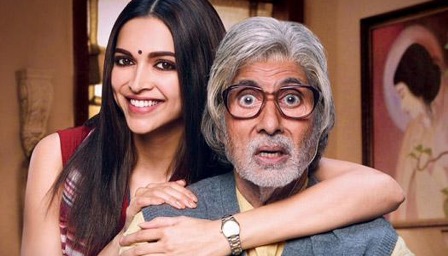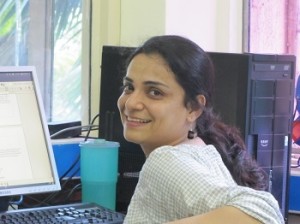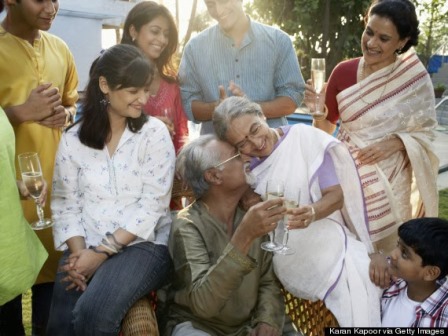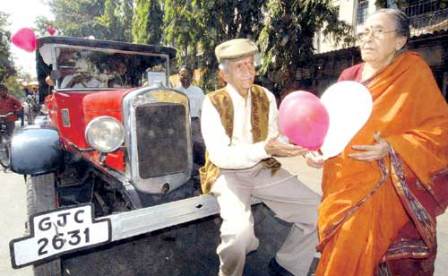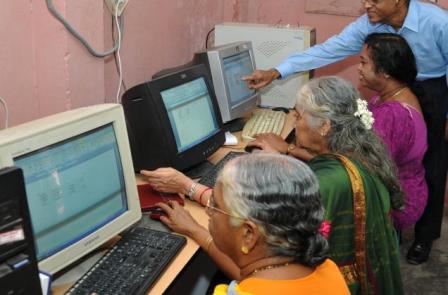What if ‘Piku’ had been the father’s story, and if the protagonist was a man? Does the story play out differently?
 by Dr Pooja Birwatkar
by Dr Pooja Birwatkar
Piku released recently to an almost unanimous vote of approval from audiences. The story of a daughter fast approaching middle age taking care of her hypochondriac old father while juggling personal problems and a career, made for an engrossing subject. While tracing the nuances of the father-daughter bond, the film made an angel out of the distressed daughter caught in two worlds, courtesy her difficult father.
As per Indian standards, Piku should have been married and settled in life, raising her kids. However, Piku is ‘deprived’ of this set pattern of life as her life’s focal point becomes her difficult and demanding father. All sympathies are bestowed on Piku as some sort of ‘victim’ who suffers a trail of misfortunes. Out of all this, the biggest point to stand out was that Piku is a girl. A girl of marriageable age who has ‘compromised’ on life for the duties she has taken upon herself.
While the film’s makers may have given a nod to gender equality by making the protagonist a woman and not a man, yet the way the ‘sacrifice’ was highlighted did not celebrate the equality of sexes. If Piku had been a man, there would have been no discussion on his marriage and sexual needs. There would be no dialogues about Piku’s virginity (she talks about her sexual needs as well). We wouldn’t think the man was making a sacrifice – rather we would take him to task for not taking care of his vulnerable parent. Piku’s pains would be his duties. Oddly enough, we cannot picture the girl Piku bringing home a husband who lives with her father and shares their daily struggles. Even her father does not give her this liberty. A man in her place enjoys the privilege of bringing home a wife who would look after his parents, while men are not expected to do so for their wives’ parents.
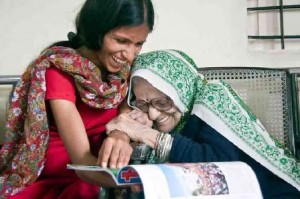 We find many Pikus in our metros. Why is this? If we look at life from the standpoint of her father, we would discover many ugly truths about life in the metros. While it is true that Piku’s father is an extreme hypochondriac, there wasn’t anything very unusual about the way he behaves. Each of us has this sort of senior in our homes, neighborhood and even extended families.
We find many Pikus in our metros. Why is this? If we look at life from the standpoint of her father, we would discover many ugly truths about life in the metros. While it is true that Piku’s father is an extreme hypochondriac, there wasn’t anything very unusual about the way he behaves. Each of us has this sort of senior in our homes, neighborhood and even extended families.
A typical couple in Mumbai goes through the expected struggles of setting up home and fulfilling all their dreams. Their entire life passes by in the pursuit of these goals. Finally, they retire to the peaceful confines of home and solitude, thinking of what might have been. In their golden years, loneliness silently creeps in and becomes the sole companion of their grey years.
Many aged people behave just like Piku’s father – they become maniacal about their health as they age, overly critical, and always apprehensive about their future. Though the film shows this behaviour as ‘selfish’, there is an empathetic note to be taken here is that severity of this behaviour can be linked to the lack of confidence one has about the smooth transition to old age and death.
While health scares, medical expenses, lack of care providers all plague our senior citizens, the biggest scare is that of being left alone. Are we doing enough to make Mumbai a blissful retiring space for our elderly? If not, why not? Are our senior citizens not justified in being overly possessive and critical? They must think with a shudder of themselves being stuck in an ambulance on a busy road, or dying alone at home while their children pursue their own lives abroad.
When Piku’s father’s dying makes life easier for everyone around, the question remains: what of those who are still alive? Aren’t the elderly justified in wanting to go back to their roots, to be near their loved ones, to be like a child again? We come full circle when we reach old age, reaching for those things we held so dear as children. Understand from the senior’s lens: it is not easy to start losing everything you worked for all your life.
We all took heart from knowing that we are not alone, that we are Pikus too. But spare a thought to the thousands of elderly citizens who are forced to depend on their children in their old age. Maybe we could then think of our parents and elders in a different way.
Dr Pooja Birwatkar is currently pursuing post doctoral research and working in the area of science education. She has been associated with the field of education in the past as a teacher educator, and her area of interest is research in education.
Grey Space’ is a weekly column on senior citizen issues. If you have an anecdote, or legal information, or anything you feel is useful to senior citizens, caregivers and the society at large, feel free to get it published in this space. Write to editor@themetrognome.in or on Facebook at www.facebook.com/Themetrognome.in and we will publish your account.
(Pictures courtesy zeenews.india.com, healthintelasia.com. Images are used for representational purpose only)

